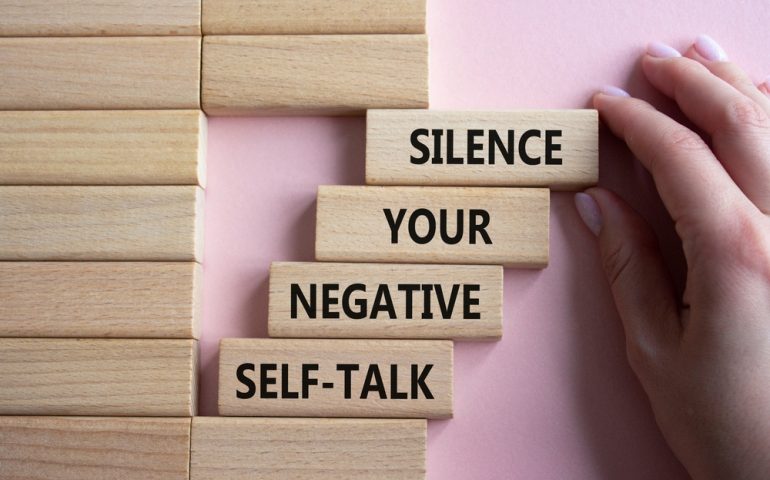Self-talk: Why talking to yourself can be good for your mental health
Positive self-talk influences the way you act or behave in real life. Affirmations, when repeated, have a profound impact on our mind. Here are some benefits of self-talk as per the expert!
Every day, from the moment we wake up, an internal dialogue shapes our thoughts, feelings, and actions. The way we speak to ourselves influences our confidence, decision-making and overall well-being. Whether it is contemplating exercise, facing new opportunities, or engaging in social interactions, the conversations we have within can significantly impact our lives. Know the benefits of cultivating a positive self-talk routine.
What are the benefits of positive self-talk?
Self-talk can be good for your mental health for multiple reasons, according to psychologist and an emotional wellness coach Anisha Jhunjhunwala.
1. Enhanced confidence and self-belief
Healthy self-talk fosters a positive mindset, boosting confidence and reinforcing self-belief. When faced with challenges or opportunities, a supportive inner dialogue can provide the encouragement needed to take bold steps and overcome self-doubt,” the expert tells Health Shots.
2. Stress reduction and emotional well-being
Positive self-talk is a powerful tool for stress reduction. By reframing negative thoughts and focusing on constructive solutions, individuals can manage stress more effectively, leading to improved emotional well-being and resilience.
3. Improved decision-making skills
As per the expert, “A habit of healthy self-talk promotes clearer thinking and enhances decision-making skills. When individuals engage in positive internal conversations, they are better equipped to assess situations objectively and make informed choices, contributing to personal and professional growth”.
4. Cultivation of resilience
Resilience is a key component of facing life’s challenges. Through positive affirmations and constructive self-reflection, healthy self-talk nurtures resilience. It enables individuals to bounce back from setbacks, learn from experiences, and adapt to adversity with a positive outlook.
5. Positive impact on relationships
“The way we talk to ourselves influences our interactions with others. Healthy self-talk fosters a positive and empathetic approach, improving communication skills and promoting healthier relationships. When individuals treat themselves kindly, they are more likely to extend that kindness to others,” reckons the expert.
6. Increased motivation and goal attainment
Positive self-talk serves as a powerful motivator. By encouraging oneself and focusing on strengths, individuals can stay motivated to pursue their goals. Healthy self-talk becomes a driving force, helping individuals overcome obstacles and stay committed to their aspirations.
7. Promotion of overall well-being
A consistent practice of healthy self-talk contributes to an overall sense of well-being. It positively influences physical health, mental clarity, and emotional stability, says the expert. By nurturing a positive inner dialogue, individuals can create a foundation for a fulfilling and balanced life.
What are some examples of positive self-talk?
- Unhealthy self-talk: “I’m not good enough to apply for that job/promotion.”
Healthy self-talk: “I have the requisite skill set and the experience needed for the promotion; I’m going to go for it to apply and showcase my capabilities.” - Unhealthy self-talk: “I always make bad choices; I’ll probably regret this decision too.”
Positive self-talk: “I’ve learned from past experiences, and I can make informed decisions. I trust myself to choose wisely.” - Unhealthy self-talk: “This situation feels overwhelming; I will be not be able to handle it.”
Positive self-talk: “I can solve my predicament by breaking this down into manageable steps and finding solutions. I’ve handled challenges before.” - Unhealthy self-talk: “I can’t bounce back from this failure; it defines me.”
Positive self-talk: “Failure is an opportunity to learn and grow. I will use this experience to become stronger.” - Unhealthy self-talk: “I’m not interesting enough for my friends to want to spend time with me.”
Positive self-talk: “I bring unique qualities to my friendships. People enjoy spending time with me.” - Unhealthy self-talk: “My goals look unattainable, I’ll never achieve them; it’s too difficult.”
Positive self-talk: “I have the determination and skills to reach my goals. I’ll take one step at a time and stay focused.” - Unhealthy self-talk: “I’ll never be happy; life is always against me.”
Healthy self-talk: “I can find joy in everyday moments. I am in control of my thoughts and emotions.”
Takeaway
Understanding the tangible impact of our internal dialogue is crucial. A single statement can be the difference between stagnation and growth, despair and resilience. Embracing positive self-talk isn’t just about thinking optimistically. It is about shaping a mindset that influences actions and transforms our journey toward a more fulfilling life.

